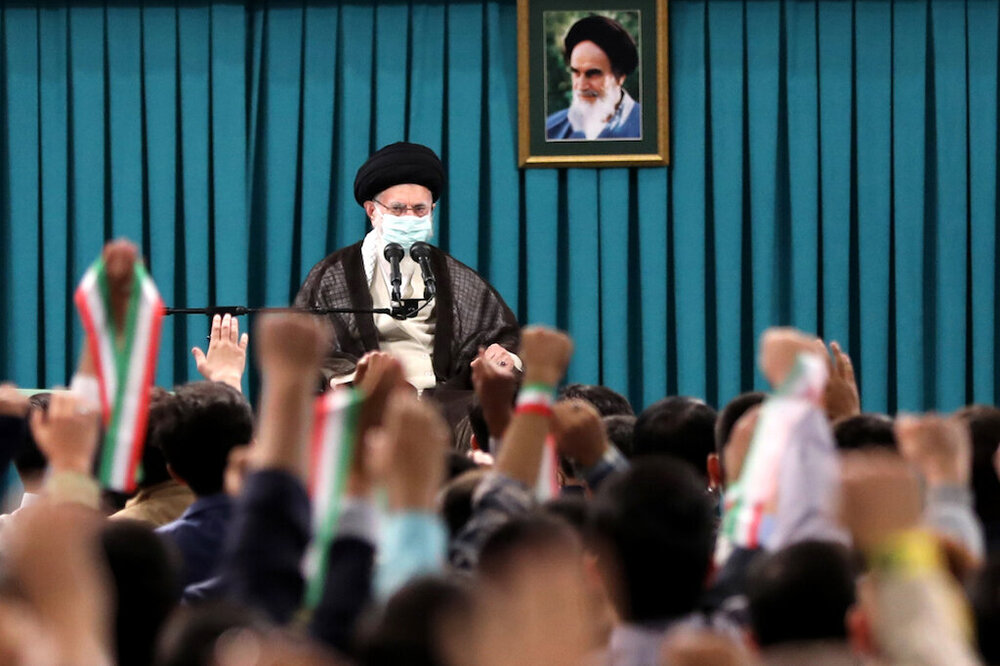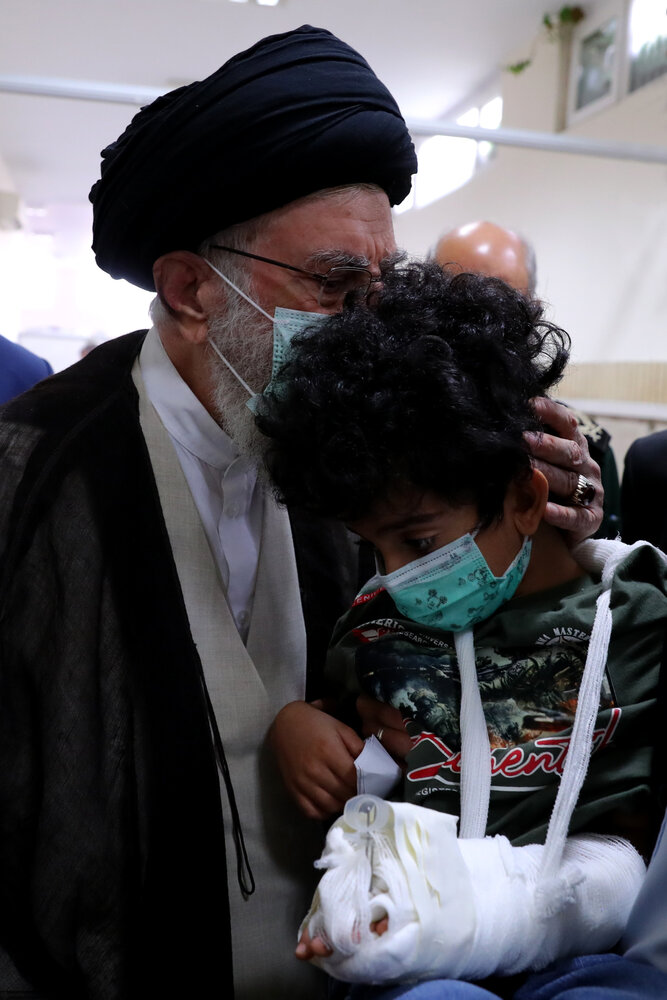Iran still pursues vengeance for Gen. Soleimani

TEHRAN – The Leader of the Islamic Revolution, Ayatollah Seyed Ali Khamenei, on Wednesday addressed the situation in Iran and U.S. policy toward Tehran in a meeting with students.
The meeting, attended by dozens of Iranian students from across the country, was held two days before the 13th of Aban (4th of November), which is National Day of Students and also the National Day of Fighting against Global Imperialism.
In his speech, Ayatollah Khamenei brooded over the history of Iran-U.S. relations and what it meant for the future of Iran. He started off with the 13th of Aban, which marks the anniversary of the takeover by Iranian revolutionary students of the U.S. embassy in Tehran in the heady days of the 1979 Islamic Revolution.

Ayatollah Khamenei receives Artin Seraydaran, a child who lost three members of his family - parents and a brother - in the Daesh-claimed terrorist attack on the Shah Cheragh shrine in Shiraz on October 26.
“When we say it is a historic day, this means that events took place on this day that will remain in history. These events cannot be forgotten, and they should not be forgotten either. They are instructive since there have been reactions as a result of these events that are a lesson for us, for the future of the country, for your future, and for the future of our nation. Learn from these experiences,” the Leader said of the 13th of Aban, according to a readout of the meeting put out by khamenei.ir. “The future belongs to you. This day is the embodiment of the evil of the United States and its defeat. So, for those who think that the U.S. is an unwavering power, it becomes evident that this is not the case when we look at the events that took place on this day. The U.S. is completely vulnerable.”
Despite its significance, Ayatollah Khamenei indicated, the 13th of Aban is not the starting point of U.S. hostility toward Iran. He described allegations that the embassy takeover is the starting point of “the challenge between the Iranian nation and the U.S.” as a “big lie.”
“This challenge began in August 1953 when the U.S., with help from Britain, toppled the national government of [Prime Minister Mohammad] Mosaddegh with a disgraceful coup,” he said. “In its propaganda, the U.S. says the overtaking of the Spy Den (U.S. embassy) was the start of the conflict between the Iranian nation and the U.S. They lie. The conflicts between Iran and the U.S. started with the 1953 coup. Why did you overthrow a national government elected by popular vote?”
He added, “The U.S. today is the same U.S. of August 19, 1953, but with two key differences. First, the ways it shows its hostility have become more complicated. Second, the U.S. was the dominant power at the time of the 1953 coup. It is not today. The U.S.'s power is diminishing little by little.”
The Leader then addressed the recent unrest taking place in Iran in the wake of the death in police custody of Mahsa Amini. Over the last few weeks, U.S. officials claimed they care about the Iranian people, something that was dismissed by Iran as empty as the U.S. has imposed tough sanctions against Iran which caused sweeping hardships for the very people of Iran.
Ayatollah Khamenei referred to this, saying, “One can see a trace of the U.S. in most of the events that take place against Iran. Then they claim they care about the Iranian nation! You have imposed the most severe sanctions - the like of which they admit have never been imposed on any nation in history - against Iran.”
Elsewhere in his speech, the Leader reiterated that Iran still seeks retribution for General Qassem Soleimani, who was assassinated by the U.S. in early 2020. “We will never forget the martyrdom of martyr Soleimani. They should know that. We gave a word in this regard and we are keeping it. It will be implemented, God willing, at the right time and at the right place,” the Leader vowed.
Leave a Comment